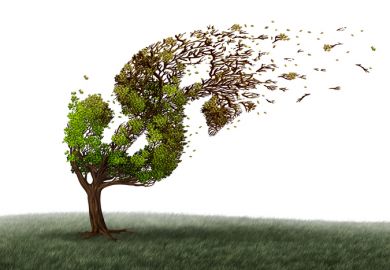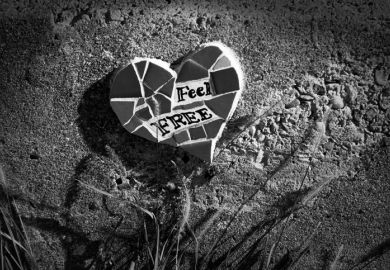Darius Rejali is an Iranian-American Shia Muslim Calvinist, as he describes himself, and a pleasure-loving professor of political science to boot. He is cosmopolitan and ecumenical, learned and grounded - an almost ideal combination for the task at hand - a dedicated surfer, an enthusiastic accordionist, a multilingual conversationalist, with a penchant for a snifter of scotch. He has an acupuncturist, the euphonious Peggy Rollo, who keeps a close eye on his carpal tunnel. He has at least three doctors, six nephews and nieces, numberless cousins, aunts, uncles, friends, sponsors, mentors, provenders, readers, listeners, Xeroxers, editors, translators and technical advisors, not to mention Kristin's cats and Quillan the Hungarian vizsla.
All of life is here. Anyone who spends 12 years on this soulless subject, and pours so much of himself into it, needs a good support system; and also perhaps a way to demonstrate, to himself and others, that human warmth and zest for life can survive such prolonged immersion in degradation - that torture is not all there is.
And yet it is difficult to avoid the conclusion that torture is Rejali's life's work. Torture and Democracy immediately lays claim to be the most compendious and the most rigorous treatment of the subject yet written. Saul Bellow used to say that we are constantly looking for the book it is necessary to read next. On torture, this is it.
It is as damning as it is distinctive. Rejali comprehends the ubiquity of the practice while at the same time routing its apologists. He focuses on what he calls "clean" or "stealth" torture, the kind that leaves no marks. His book is both a survey and a set of arguments - a typology of techniques, "regimens" or styles, mapping their migration, application and routinisation - together with a close analysis of that contested question, "Does torture work?", and a thesis about democratic culpability: "There is a long, unbroken, though largely forgotten history of torture in democracies at home and abroad, a history stretching back some 200 years and involving the main democracies of modern times." Most significantly, he finds that it is the police and the military in the democracies that have led the way in clean torture. The first police to use electric torture were the Americans (circa 1908), the British (1912) and the French (1931). The Dutch pioneered the technique of water-choking with a linen napkin or chiffon; the Americans and British pioneered the use of beating with high-pressure water; the British alone pioneered the combination of handcuffs and freezing baths. Democracies, not dictatorships, are the "innovators" in this crowded field. In a word, the torturers are us.
It is a surprisingly chatty book. Contrary to expectation, the chattiness does not undercut the seriousness; it engages us and nudges us to pay attention to what is going on. "When we watch interrogators, interrogators get sneaky."
Torture and Democracy is the anatomy of sneaky. Rejali regales us with tales of every technique of torture known to man. There is a chapter on bathtubs; a whole history of "electric stealth"; a recherche collection of "old and new restraints", including the Parrot's Perch, the crapaudine and the shabeh; a section on "clean whipping", "pumping" and choking; a discussion of international trends in positional torture, psychological torture, pharmacological torture, and much, much more.
This is dispiriting but never dreary. Through it all the author has a beguiling way of packaging his thoughts. The very idea of "national styles in stealth torture" is a suggestive one, by analogy with national styles in strategy. Here we are treated to "French modern" (electro-torture and water torture) and "Anglo-Saxon modern" (stress and duress, water, beating, noise and drugs), among others; and in explaining the persistence of such styles, or variations, introduced to the idea of torture as a "craft apprenticeship", with its own social networks, historical traditions and almost superstitious beliefs.
Rejali's analysis of efficacy is exemplary: at once prudent and trenchant, historically alert and morally sentient. His answer is as close to definitive as we are likely to get. It offers no crumb of comfort to the advocates or the apologists, the lazy or the credulous, prepared to countenance "exceptional measures" in "exceptional circumstances". Simply put, torture does not work. Not only does it fail to produce the desired results; its unintended consequences are socially and politically disastrous.
Rejali resolves the torturer's objectives into three - intimidation, confession and information. One might add humiliation. Classically, the question of efficacy focuses on the information. Is it true? Is it timely? In other words, is it "actionable", in intelligence jargon? The record shows that it is extremely difficult for the torturer to tell. Rejali is good on the manifold sources of error "that systematically and unavoidably corrupt information gathered through torture": the difficulty of identifying who has information in the first place (who is worth torturing); the difficulty of spotting deception; and the difficulty of parsing the welter of words spewed out by the tortured - the actionable but deceptive information given by the uncooperative or innocent, the mistaken but confident information given by the cooperative, the true but inconsequential information given by anyone bent on saving his own skin, or settling old scores, or simply naming plausible names.
The study of torture focuses naturally on the victims. Torture and Democracy also draws attention to its corrosive effect on the perpetrators. Rejali underlines the alienation, fragmentation and "deprofessionalisation" to which torturers fall prey; and, apropos the French and the Battle of Algiers (1957), "the devastating consequences of torture for any democracy foolish enough to institutionalize it". The argument might have been developed further. Torture has a curiously reversible property, as the heirs of Abu Ghraib will bear witness. As Walt Whitman knew, the damage is indivisible: "Whoever degrades another degrades me, and whatever is done or said returns at last to me."
Alex Danchev is professor of international relations, University of Nottingham.
Torture and Democracy
By Darius Rejali
Princeton University Press
880pp
£23.95
ISBN 9780691114224
Published 7 January 2008
Register to continue
Why register?
- Registration is free and only takes a moment
- Once registered, you can read 3 articles a month
- Sign up for our newsletter
Subscribe
Or subscribe for unlimited access to:
- Unlimited access to news, views, insights & reviews
- Digital editions
- Digital access to THE’s university and college rankings analysis
Already registered or a current subscriber? Login




